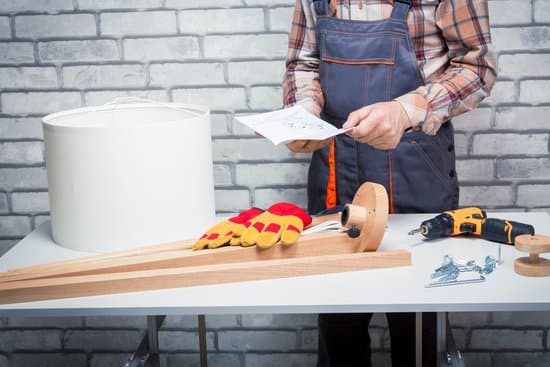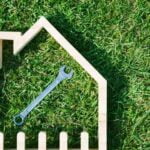Are you wondering, “how can I improve the energy efficiency of my home?” Energy efficiency is a crucial factor in reducing energy consumption and minimizing environmental impact. By making your home more energy-efficient, you can also enjoy cost savings in the long run.
In this article, we will explore various ways to improve the energy efficiency of your home, from conducting a home energy audit to upgrading to energy-efficient appliances and harnessing solar energy. These steps not only benefit your wallet but also contribute to a greener and more sustainable planet.
Energy efficiency refers to using less energy to accomplish the same tasks, thereby reducing waste and maximizing performance. It is essential for homeowners to understand the significance of improving energy efficiency as it not only lowers utility bills but also helps in preserving natural resources and reducing pollution. Whether it’s through proper insulation, upgrading appliances, or implementing smart home technology, there are numerous ways to make your home more efficient in terms of energy usage.
One key aspect of understanding and improving energy efficiency is conducting a home energy audit to identify areas for improvement. This process involves assessing the overall energy consumption of your home and pinpointing areas where there may be potential for savings. Whether you choose to conduct a DIY audit or hire a professional, this step is crucial in identifying specific changes that can lead to greater efficiency and cost savings over time.
Conducting a Home Energy Audit
Importance of a Home Energy Audit
A home energy audit is an essential step in identifying areas for improvement in terms of energy efficiency. This process involves assessing the entire home to pinpoint sources of energy waste and inefficiency. By conducting a thorough audit, homeowners can gain valuable insights into their energy usage patterns and prioritize areas for improvement, ultimately leading to cost savings and reduced environmental impact.
DIY vs Professional Audit
There are two main options when it comes to conducting a home energy audit: do-it-yourself (DIY) or hiring a professional. A DIY audit involves using simple tools and techniques to evaluate energy usage, such as using a thermal leak detector or inspecting insulation levels.
On the other hand, hiring a professional auditor can provide a more comprehensive evaluation using specialized equipment and expertise. Both approaches have their advantages, and the choice depends on the homeowner’s preferences, resources, and the complexity of their home.
Tips for Conducting an Audit
For those opting to conduct a DIY audit, there are several key areas to focus on. Checking for air leaks around windows and doors, assessing insulation levels in attics and crawl spaces, and examining heating and cooling systems are some of the crucial steps to take. Additionally, analyzing utility bills over time can provide valuable information about energy consumption trends. Meanwhile, homeowners considering hiring professionals should research certified auditors with good reputations and compare costs before making a decision.
By conducting a home energy audit – whether through DIY methods or with professional assistance – homeowners can gain valuable insights into how they can improve the energy efficiency of their homes How can i improve the energy efficiency of my home? Conducting an initial assessment allows homeowners to identify specific areas that need attention when it comes to reducing energy waste and increasing overall efficiency in their living space.
Insulation and Air Sealing
Proper insulation and air sealing are essential components of improving the energy efficiency of a home. By preventing energy loss through these means, homeowners can significantly reduce their energy consumption and save on utility costs. Here are some tips on how you can effectively insulate and seal your home to minimize energy waste:
- Check and upgrade insulation: Start by checking the insulation in your attic, walls, and floors. Consider adding more insulation if necessary, especially in older homes where insulation may be inadequate. Use materials with high R-values for better thermal resistance.
- Seal air leaks: Look for air leaks around windows, doors, electrical outlets, and any other penetrations that may allow heated or cooled air to escape. Seal these gaps with caulk, weatherstripping, or expanding foam to minimize energy loss.
- Consider professional assistance: If you’re unsure about the effectiveness of your home’s insulation and air sealing, consider hiring a professional to conduct an energy audit and perform the necessary upgrades.
Improving your home’s insulation and air sealing not only enhances its energy efficiency but also contributes to a more comfortable living environment. By taking these steps, you can decrease your carbon footprint while enjoying long-term cost savings on your energy bills.
In addition to minimizing energy loss through proper insulation and air sealing, homeowners should also consider investing in efficient windows and doors as well as utilizing window treatments like blinds or curtains to further enhance their home’s overall energy efficiency. Making small changes such as updating weather stripping or installing storm doors can make a significant impact in reducing the amount of wasted energy in your home.
Upgrading to Energy-Efficient Appliances
When considering how to improve the energy efficiency of your home, one key area to focus on is upgrading to energy-efficient appliances. Old and inefficient appliances can significantly contribute to higher energy consumption, leading to increased utility bills and unnecessary environmental impact. By choosing the right products and understanding energy efficiency standards, homeowners can make a positive impact on their energy usage and overall sustainability.
When looking to upgrade appliances, it’s essential to consider products that are ENERGY STAR certified. ENERGY STAR is a government-backed program that helps consumers identify energy-efficient products that meet strict efficiency guidelines. These products not only help reduce energy consumption but also save homeowners money in the long run through lower utility bills. Additionally, ENERGY STAR appliances often come with rebates or incentives from utility companies or government programs, making them even more cost-effective for homeowners.
In addition to looking for the ENERGY STAR label, it’s important for homeowners to consider the specific needs of their household when choosing new appliances. For example, when selecting a new refrigerator or freezer, it’s crucial to find the right size and capacity for your family’s needs in order to avoid wasting energy on unused space.
Similarly, opting for front-loading washing machines and dishwashers can also lead to significant energy savings compared to traditional top-loading models. By conducting thorough research and understanding your household’s requirements, you can make informed decisions when upgrading to energy-efficient appliances and ultimately improve the overall efficiency of your home.
HVAC System Maintenance
When considering how to improve the energy efficiency of your home, it is crucial to pay attention to your heating, ventilation, and air conditioning (HVAC) system. Regular maintenance of your HVAC system is essential for maximizing its efficiency and performance, ultimately leading to significant energy savings. By taking simple steps to ensure that your HVAC system operates at its best, you can reduce energy consumption and lower your utility bills.
One key aspect of HVAC system maintenance is changing the air filters regularly. Clogged or dirty filters can restrict airflow, causing your HVAC system to work harder and consume more energy. By replacing the filters every 1-3 months, you can improve the system’s efficiency and prolong its lifespan. Additionally, scheduling professional HVAC maintenance at least once a year is highly recommended. A professional technician can inspect and tune up your system, ensuring that it operates at peak efficiency.
Another important aspect of maintaining an efficient HVAC system is sealing any duct leaks. According to the U.S. Department of Energy, typical duct systems lose 20-30% of the air that moves through them due to leaks, holes, and poorly connected ducts. Sealing these leaks with mastic or metal tape can improve the efficiency of your HVAC system and lower energy consumption.
Properly insulating ducts in unconditioned spaces such as attics or crawl spaces is also crucial for maximizing the efficiency of your HVAC system. This prevents heat loss in the winter and heat gain in the summer, reducing the workload on your heating and cooling equipment. By addressing these maintenance tasks, homeowners can significantly improve their home’s energy efficiency and reduce their environmental impact.
| Aspect | Importance |
|---|---|
| Air Filter Replacement | Improves airflow and reduces energy consumption |
| Duct Leak Sealing | Prevents energy loss from leaky ducts |
| Duct Insulation | Reduces heat loss/gain for improved efficiency |
Harnessing Solar Energy
The Benefits of Solar Energy
One of the most effective ways to improve the energy efficiency of your home is by harnessing solar energy. Solar panels can significantly reduce your reliance on traditional energy sources, resulting in cost savings and environmental benefits. By generating electricity from sunlight, homeowners can contribute to a cleaner and more sustainable future.
Installation Process and Cost Savings
When considering solar energy for your home, it is important to understand the installation process and potential cost savings. Installing solar panels typically involves a consultation with a reputable provider, followed by the placement and connection of the panels to your home’s electrical system. While there is an initial investment, many homeowners experience long-term savings on their utility bills as a result of reduced energy consumption from the grid.
Environmental Impact
In addition to financial benefits, harnessing solar energy also has a positive impact on the environment. By reducing dependency on fossil fuels, solar power helps lower greenhouse gas emissions and overall carbon footprint. As climate change continues to be a critical issue, embracing renewable energy options like solar power is both responsible and forward-thinking.
By exploring the possibilities of solar energy for your home, you can take a proactive step towards improving its energy efficiency while contributing to environmental sustainability. If you find yourself asking “how can I improve the energy efficiency of my home,” consider consulting with a professional to assess the suitability of solar power for your property.
Smart Home Technology
One of the key advantages of smart home technology is the ability to remotely control and monitor energy usage. Smart thermostats, for example, allow homeowners to adjust temperature settings from their smartphones, ensuring that heating and cooling systems are not running unnecessarily when no one is at home. This level of automation can lead to substantial energy savings over time.
In addition to remote access, smart home technology also offers features such as occupancy sensors, which automatically adjust lighting and HVAC settings based on whether a room is occupied or empty. This eliminates the need for manual adjustments and ensures that energy is not wasted in unoccupied areas of the home.
Furthermore, many smart devices are designed to provide real-time data on energy consumption, allowing homeowners to track their usage patterns and identify opportunities for improvement. By understanding how much energy different appliances and systems are consuming, individuals can make informed decisions about where to focus their efforts in order to maximize efficiency.
| Smart Home Technology Benefits | Explanation |
|---|---|
| Remote Energy Control | Allows homeowners to adjust temperature settings from smartphones |
| Occupancy Sensors | Automatically adjust lighting and HVAC settings based on occupancy |
| Real-Time Energy Data | Provides insights into energy consumption patterns for informed decision-making |
Government Incentives and Rebates
One of the most effective ways to improve the energy efficiency of your home is by taking advantage of government incentives and rebates. These financial support programs are designed to encourage homeowners to make energy-saving upgrades that not only benefit them but also contribute to a more sustainable environment. By understanding and utilizing these incentives, homeowners can significantly offset the cost of implementing energy-efficient initiatives.
Many government agencies offer incentives, rebates, and tax credits for making energy-efficient improvements to your home. These can include everything from installing solar panels and upgrading to energy-efficient appliances to improving insulation and air sealing. It’s important to research what programs are available in your area and determine which ones you qualify for based on your specific home improvement plans.
In addition to federal government programs, many state and local governments also offer their own incentives for improving home energy efficiency. These programs may vary in terms of eligibility requirements, available benefits, and application processes, so it’s crucial to thoroughly research what options are available in your area. By taking advantage of these financial support opportunities, homeowners can make significant strides towards reducing their environmental impact while also enjoying long-term cost savings on their energy bills.
To find out how you can improve the energy efficiency of your home through government incentives and rebates, start by visiting the websites of relevant agencies or contacting local utility companies. They can provide valuable information about available programs, eligibility requirements, application procedures, and potential cost savings. By leveraging these resources, you can make informed decisions about which energy-efficient upgrades are best suited for your home and take proactive steps towards a more sustainable future.
Conclusion
In conclusion, improving the energy efficiency of your home is not only beneficial for reducing energy consumption and environmental impact but also for saving on costs in the long run. By understanding what energy efficiency is and why it’s important, homeowners can take proactive steps to make their homes more efficient.
Conducting a thorough home energy audit is a crucial first step in identifying areas for improvement, whether it’s through DIY methods or hiring a professional to assess the home.
Insulation and air sealing play a critical role in preventing energy loss, and properly insulating and sealing windows, doors, and other potential areas of air leakage can significantly improve efficiency. Additionally, upgrading to energy-efficient appliances and maintaining HVAC systems can make a substantial difference in energy usage. Exploring renewable energy options like solar panels and integrating smart home technology can further optimize energy usage.
Frequently Asked Questions
What Would Make a House More Energy Efficient?
Making a house more energy efficient can involve several steps. This includes improving insulation to reduce heating and cooling losses, installing energy-efficient windows and doors, using energy-efficient appliances, and switching to LED lighting. Additionally, installing programmable thermostats can help regulate the home’s temperature more efficiently.
What Is a Low Cost Way to Make Your Home More Energy Efficient?
A low-cost way to make your home more energy efficient is to start with simple habits like turning off lights and unplugging electronic devices when not in use. Using weather stripping to seal air leaks around doors and windows can also prevent drafts and improve energy efficiency without breaking the bank.
Additionally, regularly maintaining heating and cooling systems can improve their efficiency.
How Can Energy Efficiency Be Improved?
Energy efficiency can be improved through various methods. One way is by conducting an energy audit to identify areas of improvement within the home.
Implementing smart home technology such as smart thermostats and smart lighting can help regulate energy usage more effectively. Additionally, making upgrades such as installing solar panels or upgrading to energy-efficient HVAC systems can make a significant impact on overall energy efficiency in a home.

I’m thrilled to have you here as a part of the Remodeling Top community. This is where my journey as an architect and remodeling enthusiast intersects with your passion for transforming houses into dream homes.





